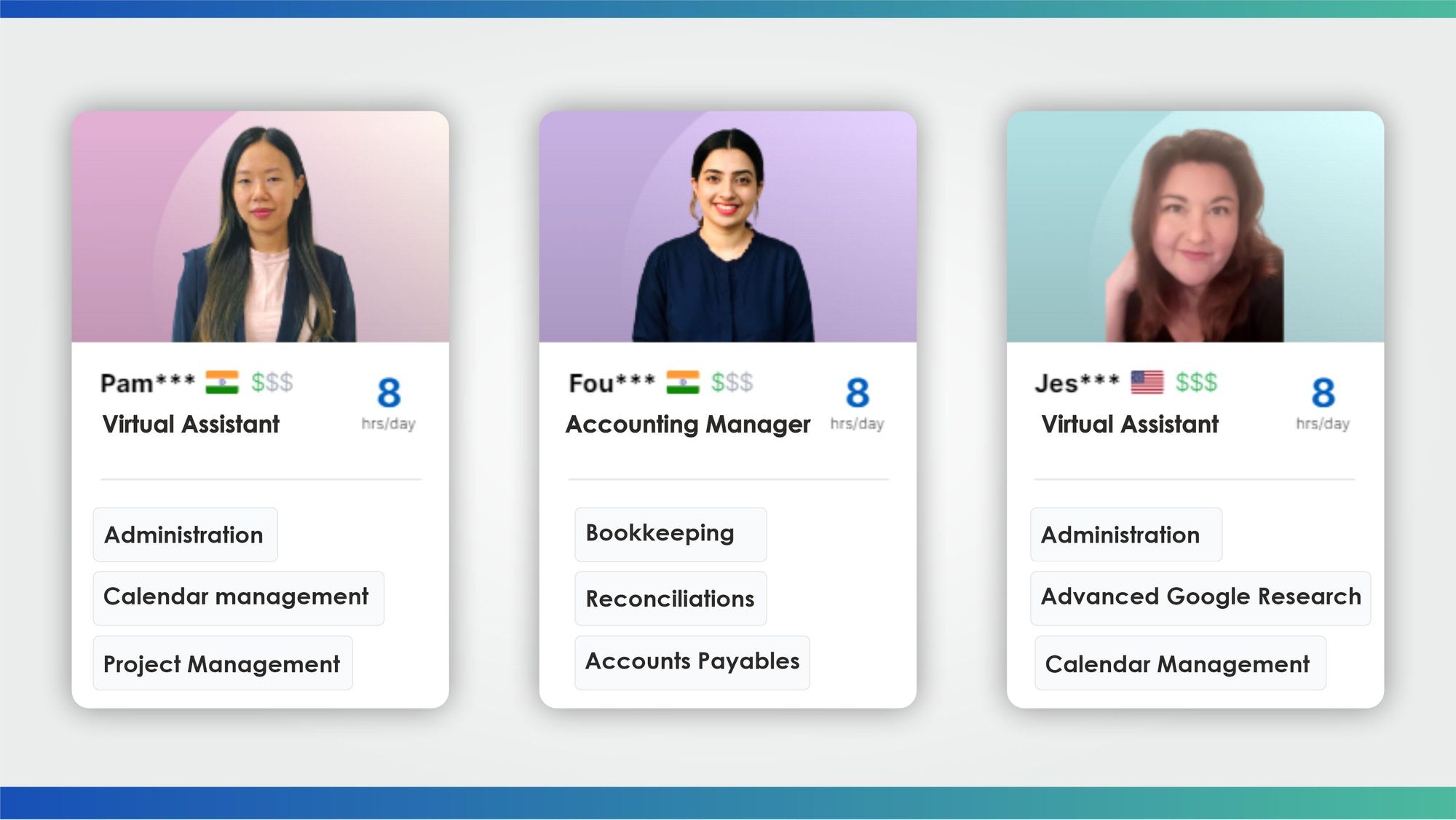It takes all kinds, right? If you’re part of a workplace then I’m sure you know it can be quite a zoo of personalities. Yes, even for remote ones! Especially with the entrance of applicants open to workers from around the globe, room for just about every distinct persona is colossal.

Check out these 7 types of remote workers you’ll encounter in every remote environment:
The Hyperactive Spammer
Can you guess what the biggest time-waster is in a workplace? Meetings? Gossip sessions? Phone distractions?
None, it’s EMAIL, an average employee checks their inbox 36 times per hour and sends & receives 122 emails daily, one of the biggest productivity barriers. But this set of batch goes the extra mile with following up whether through emails, voicemails, calls, even when not needed. Yes, remote work sure does require adequate communication but they’re just the can’t stop, won't stop gang.
For all oversharers, spare your co-workers the details of your love life and vacation pictures, and yes you have succeeded in making us jealous. A quick tip-oversharing and not maintaining boundaries at work is critical for your own privacy, unless you fancy having a stalker.

The Independent Act
You know those kids that did the entire group’s presentation to avoid dealing with the hassle of assigning tasks, unnecessary follow-ups and discussions, yes that’s them.
Due to their habit of living and working under a rock, they really dig this whole remote work vibe, because water cooler talks and working in teams is just not their thing. Not just the kick of cracking the project on their own, sharing of credit is something they utterly despise.
Yes, 86% employees work better when left alone, but teamwork, socialisation and collaborative brainstorming are key for growth.
With 39% employees believing that collaboration in their organisation isn’t enough, this type that disappears into thin air can be blamed!

The Social Butterfly
Yes, staying connected is significant especially in a remote environment to boost morale and engagement but like Mark Twain stated, “too much of anything is bad.”
Detect them by spotting the ones that continually exchange pictures, videos, memes every few hours. They don’t let the lack of a water-cooler or a bathroom get in the way of their juicy gossips. They sure do a good job at gluing the team together and avoiding feelings of isolation. But these overly chatty employees are one of the leading culprits for poor workplace productivity.
With an estimated 3 hours a day spent by an employee on their phones each day, imagine how much they spend! Fun fact- once you’re diverted from work by a distraction, an average of 23 minutes, 15 seconds is expected to get back on track. Not pointing fingers, but they’re definitely not the most efficient and productive.

The Shy Guy
These are the type who choose a remote organisation to avoid humans bugging around them. Similar to the independent act ones, they prefer to work alone but only so they can avoid socialisation.
Their presence in team building activities and interactive sessions is invisible, and they don’t seem to take offence if you forget their name. They don’t believe in small talk, nor do they try to be part of any “fun” plans.
This set is often shown inferior by comparing extroverts as the success leaders, despite potentially the same skill set and work. But the importance of socialising that they lack follows with innumerable benefits like increased happiness, less stress & a healthier life. Their disengagement might also be costing you $450-$500 billion each year!

The 24/7 Grinder
Words like work-life balance & frequent rests just don’t exist in their dictionary. To identify this type, if you find yourself answering work calls during a family picnic - then you’ve made it to this category!
These over-achievers and over-committers cannot say no - you’ll find them working over time, at fundraisers and volunteer marathons - they have a serious problem of fear of missing out (#FOMO) and burnout is their body’s norm.
While you may think the harder you work, the more successful you’ll be. But chronic overwork can negatively impact your brain by increasing stress levels and inducing poor habits like substandard eating and skipping sleep ultimately impacting the main motive and reducing work performance. In fact, research shows that taking breaks increases job productivity, efficiency and satisfaction.

The “Where am I, What is happening”
You know the child that without sleeping dozes off in a class and imagines partying while studying, yes that’s them but at work. How to spot them?
Nearly 70% of workers admit to being distracted at work and this bunch is extremely common, they can be working on a task and suddenly remember about their half cooked pasta, making them the worst candidates for remote workers. One phone notification buzz and bid farewell to your dream of them submitting their work on time, because their attention span is that of a baby.
You know the numerous work from home tips article, where lying on a bed and working in pjs was said to be a big no-no, that was especially aimed for them.

The Mythical Utopian Figure
You know the kid with good grades, involvement in extracurricular activities and the one who manages to have a good friend circle at school? This is them.
They have every hour planned out without compromising on personal or family time basically unlike any listed above, they don't go overboard with communication, socialisation and work prioritisation and are just the perfect too good to be true guys that remote managers desire.
Don’t let these ones slide, 81% employees consider to leave a job based on the right offer. Recognition & career training helps keep 86% of workers from leaving.


